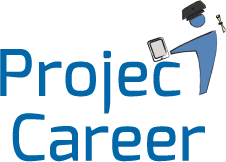Cognitive Support Technology
by Marcia J. Scherer, Ph.D., MPH, CRC
Assistive Technology (AT) is generally defined as "any item, piece of equipment, or product system whether acquired commercially, modified or customized, that is used to increase, maintain, or improve functional capabilities of individuals with disabilities" (Technology Related Assistance for Individuals with Disabilities Act of 1988, Pub. L. 100-407, Title 29, Chapter 31, § 3002(a)(3)). These can be acquired commercially, off the shelf, modified, or customized. Cognitive Support Technologies (CST) are a class of assistive technologies designed to help with memory, attention, concentration, and so on. CSTs can be no-tech, mechnical, or electronic devices specifically designed to support memory, thought, or any of the specific mental functions listed in the International Classification of Functioning, Disability and Health (ICF). They also can be everyday technologies that are adopted by and/or adapted to the needs of persons with cognitive disabilities.
For more information about Cognitive Support Technologies, check out these publications by author Marcia Scherer:
- Assistive Technology Assessment Handbook (Rehabilitation Science in Practice Series). 2012 by Stefano Federici and Marcia Scherer
- Assistive Technologies and Other Supports for People with Brain Impairment, 1st Ed. (2011)
- Assistive Technology in the Workplace, 1st Ed. (2006) by Desleigh de Jonge, Marcia Scherer, and Sylvia Rodger
- Assistive Technology: Matching Device and Consumer for Successful Rehabilitation 1st Ed. by Marcia Scherer (Ed.)
How Does Project Career Use Cognitive Support Technology?
Every student who participates in Project Career is provided with an iPad. We chose the iPad for several reasons:
- Ease of use
- Portability
- Durability
- Low cost
- Ability to transfer to employment settings
- Used by many students, not just those who have a TBI
However, almost any mobile technology such as a laptop or other tablet computer would work. Some students might even find that a smart phone would be sufficient, depending on the specific apps needed
What Cognitive Functions Can Benefit from CST?
Currently, there are apps available to the general public that can be used to assist a very broad range of cognitive functions. Numerous apps exist to help with typical classroom functions such as note taking, time management, scheduling, organizing, studying, etc. Other apps can help with reading, writing, and learning or reviewing course materials (e.g., flash cards). In addition, many students who have experienced a TBI benefit from use of apps designed for improving sleep habits, tracking headaches, relaxing, and meditating. Each student's needs are unique.
